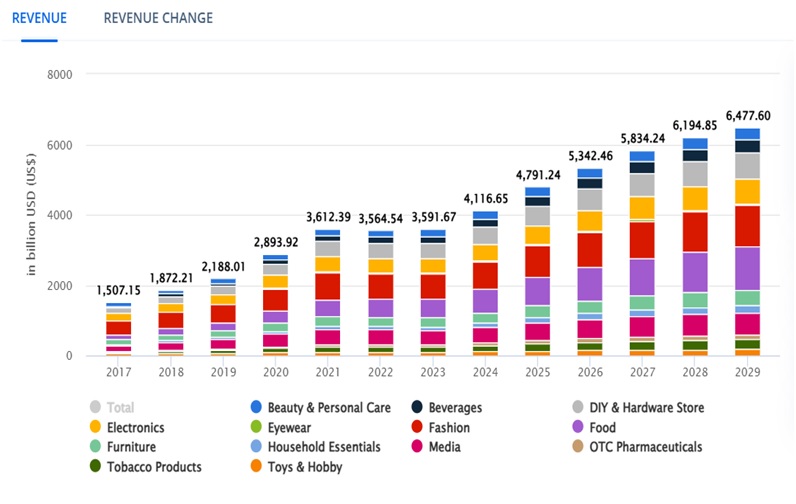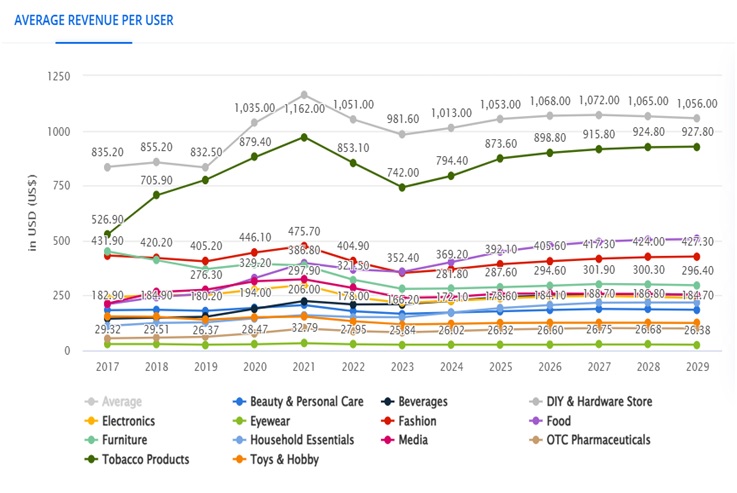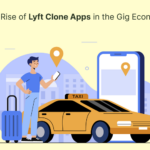eCommerce: The Main Game Changer of the FMCG Industry

The entire shopping culture has changed with time with E-commerce. It has also impacted the current FMCG industry. As per the report we found on Statista, the global FMCG market online share will be around 10% in 2025. In the same way, the e-commerce retail sales share in the FMCG will grow by over $4.1 trillion globally. Do you get an idea of what this figure is predicting? It’s a clear indication of the growing opportunities in product distribution and operations. As per the current E-commerce FMCG trends, most companies use E-commerce platforms to sell FMCG products, including food, beverages, cleaning supplies and household items.
In this post, you will get a proper understanding of the ways E-commerce has completely remodelled the FMCG industry in the past few years.
What Comes Under the FMCG Industry?
———————————-
Identifying the FMCG products is a crucial step in understanding the scenario better. Packaged food, beverages, stationery, cleaning supplies, and household items are typically covered under Fast-moving Consumer Goods.
For a clear overview of the FMCG business sector, take a look at the extensive product range it covers. After the emergence of eCommerce, these products are now available on online shopping platforms like Ubuy.
| Category | Examples of Products |
| Food and Beverages | ● Foods in packaging, such as snacks, frozen meals, and canned items
● Dairy, such as milk products, cheese, and yoghurt ● Popular Beverages such as sodas, juices, and bottled Water ● Bakery such as bread, pastries, and cookies ● ketchup, sauces, and spices |
| Personal Care Products | ● Oral Care products such as Toothpaste, and Mouthwash.
● Skincare products such as Lotions, Moiturisers, and Cleansers ● Hair Care products such as Shampoo, Conditioner, and Styling products ● Deodorants and Fragrances |
| Household Care Products | ● Cleaning Supplies such as Detergents, Disinfectants, and Surface Cleaners
● Paper Products such as Toiletries and Napkins ● Laundry Products such as Washing Powders & Liquids, and Fabric Softeners |
| Health and Wellness | ● Over-the-counter medications such as Pain Relievers and Medicine
● Vitamins and dietary supplements |
| Baby Care Products | ● Diapers
● Wipes ● Baby Food |
| Pet Care Products | ● Pet food
● Treats ● Grooming supplies |
When eCommerce was not involved, the shopping process typically started with the consumer’s need for specific products. They gathered information through advertisements, in-store promotions, and recommendations from family or friends. After gathering recommendations, they finalised the needed product and purchased it directly from a retail store.
Rise of eCommerce
———————————-
The emergence of eCommerce completely changed the structure of the conventional FMCG industry. It allowed small or large businesses to expand their sales and operations via online channels like Ubuy Bangladesh. This approach broke down consumers’ traditional shopping behaviour by providing thousands of buying options for the same product directly to their homes at the best prices.
The scenario changed more rigorously when COVID-19 hit the world. During the pandemic, consumers found eCommerce to be the only option for getting essential FMCG products.
According to NielsenIQ’s recent study, the Indian Brand Equity Foundation stated that 60% of FMCG companies consider eCommerce to be their most critical sales platform, out of which 75% were mid-sized businesses.
Key Changes Brought by eCommerce
———————————-
eCommerce platforms like Ubuy have helped businesses ship their products directly to consumers anytime and anywhere. Customers can now explore the popular eCommerce platforms to find the needed products by placing the order and getting it conveniently at their doorstep. This Direct-to-customer approach enhanced the overall shopping experience with the integration of easy accessibility.
Large brands and medium-sized retail businesses are offering their products through their online stores. On the other hand, small retailers are approaching third-party marketplaces.
The strategic use of retail consumer data and analytics through e-commerce platforms has helped to understand consumer behaviour and shopping interests. The insights from the identified data have helped brands redirect their sales strategies based on the popularity of products and seasonal trends. Moreover, this information has also assisted E-Commerce platforms in monitoring their inventories in real time.
Significant eCommerce Trends for FMCG
———————————-
When we take a look at the latest FMCG business trends, the Worldwide revenue of the eCommerce market is going to reach $4791 billion in 2025. These eCommerce trends give you a quick idea of how the current use of eCommerce influences the FMCG industry.

When we talk about average revenue per user, these FMCG eCommerce trends are worth mentioning. These trends emphasise that the average revenue per year has also changed dramatically and recognise the importance of eCommerce in the current FMCG scenario.
 Take a look at the 10 emerging future FMCG trends that are likely to influence the entire scenario.
Take a look at the 10 emerging future FMCG trends that are likely to influence the entire scenario.
| Trend | Description |
| Digitalisation | Innovative technologies and automation will streamline production, marketing, and supply chain operations. |
| FMCG E-Commerce | Direct-to-consumer (D2C) models and quick-commerce (Q-commerce) will reshape online FMCG sales. |
| Big Data & Analytics | Data-driven decision-making will help optimise inventory, pricing, and customer insights. |
| Artificial Intelligence | AI-driven chatbots, predictive analytics, and automated operations will boost efficiency. |
| Internet of Things (IoT) | Innovative packaging and connected devices will enhance product tracking and customer engagement. |
| Blockchain | Transparency and security in supply chains will improve through decentralised ledger technology. |
| 3D Printing | Customisable and on-demand production of FMCG products will become more prevalent. |
Challenges for FMCG in eCommerce
———————————-
Even after going through all these positives of eCommerce, there are still some challenges that FMCG companies need to consider. Maintaining the integrity of the FMCG goods until it reaches the customer is a significant concern, especially in the case of perishable goods like juices or dairy products. The brands have to collaborate with leading logistic solutions to enhance their supply chain management, which can be an overhead cost for the companies or an added cost for the consumers.
Another challenge is maintaining brand loyalty in the overcrowded online market. This requires brands to sustain product quality across all eCommerce platforms and marketplaces consistently. A slight discrepancy in product quality can result in customer dissatisfaction. Personalised marketing approaches and engaging with customers on multiple online channels can create a resonating brand experience.
The latest challenge faced by FMCG businesses is the entrance of new players on eCommerce platforms. Leading brands face tough competition from newly launched companies and fear losing their loyal customer base. To survive in this eCommerce battleground, FMCG businesses need to improve their product quality consistently.
Why Choose eCommerce Platforms for Giving a Push to the FMCG Industry?
———————————-
eCommerce is an excellent playground for FMCG companies to grow and expand if handled with proper strategies and the right approach. Take a look at some points that suggest FMCG companies prefer eCommerce platforms over a conventional business approach.
- Global Reach
eCommerce platforms like Ubuy provide FMCG businesses with an extensive global reach to Worldwide audiences or customers, which is not possible in traditional shopping.
- Personalised Marketing
The customer data gathered by companies from eCommerce platforms allow them to run personalised marketing campaigns for their products based on the consumer’s behaviour and preferences.
- Enhanced Customer Experience
The eCommerce platforms help FMCG brands build a loyal customer base by providing a seamless shopping experience. Straightforward exploration of products, multiple payment options and quick checkouts facilitate customers and increase the businesses’ revenue.
Steps Recommended for FMCG Businesses to Get the Best Impact Using eCommerce
———————————-
In order to maximise the impact of eCommerce strategies in the FMCG sector, companies should consider the following steps.
FMCG brands can adopt a value-driven approach to growing volume and customer loyalty instead of using aggressive pricing tactics.
Providing seamless integration between online and offline channels ensures a consistent brand message and customer experience across all the points of sale. FMCG Brands like Loreal have developed similar kinds of omnichannel strategies to get the best impact.
Last but not least, brands like Nestle use data analytics and AI to predict customer behaviour and optimise marketing strategies accordingly.
Final Thoughts
Finally, eCommerce works as a transformative force within the FMCG industry to reshape consumer-business interaction with streamlined operations and tremendous growth potential. FMCG businesses must understand this fact and should work on it with the right strategies to expand their business and improve sales.




